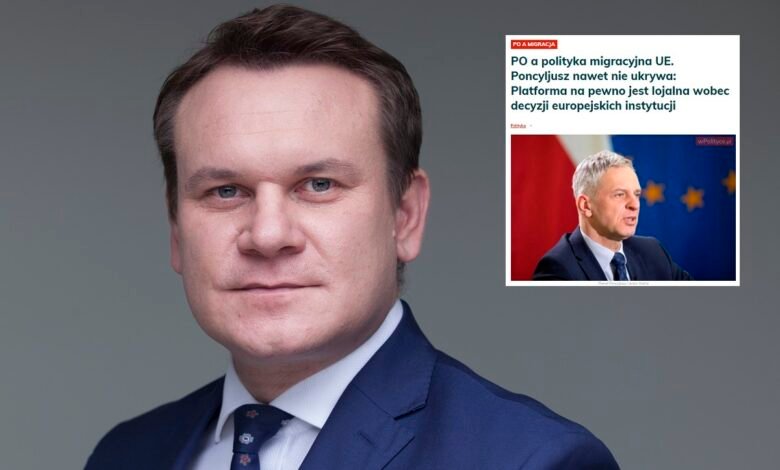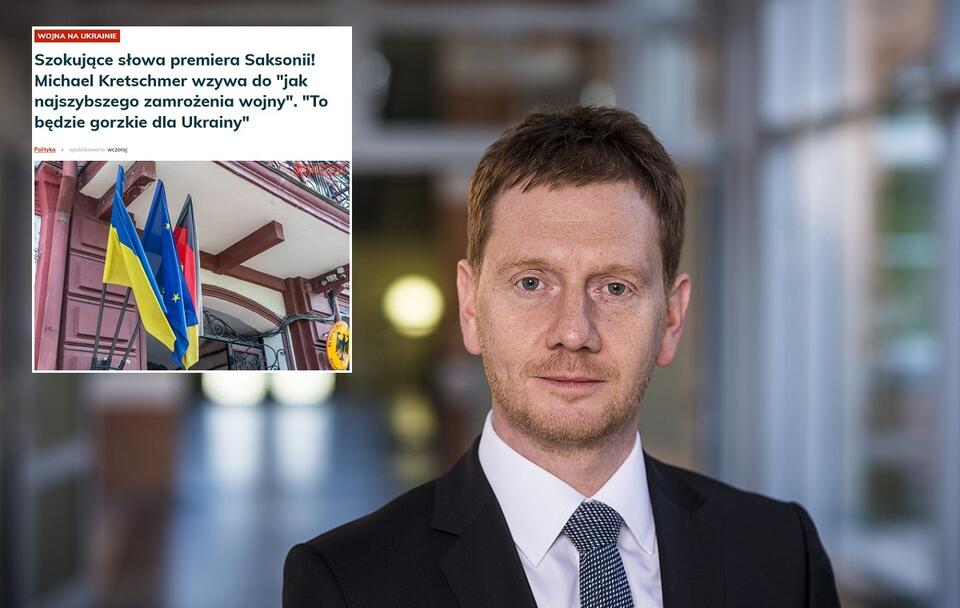Wpolityce Pl Polityka: Navigating Poland’s Political Landscape

Politics shape our society and future. Understanding it is crucial for everyone.
“Wpolityce Pl Polityka” provides insights into Polish politics. This blog will explore the latest political news and analysis from Poland. We’ll cover key political events, policies, and discussions shaping the country. Whether you’re a political enthusiast or just curious, this blog will keep you informed.
Stay tuned for in-depth coverage and perspectives on Poland’s political landscape.
Historical Background
The history of Poland’s political landscape is rich and complex. The modern political scene was shaped significantly by events in the late 20th century. Understanding this history helps in comprehending current political dynamics.
Post-communist Transition
Poland’s shift from communism began in the late 1980s. The fall of the Berlin Wall in 1989 marked a significant turning point. Poland held its first free elections that year. The Solidarity movement, led by Lech Wałęsa, played a crucial role. This movement started as a trade union and grew into a powerful political force. The transition was peaceful, which was remarkable.
During this period, economic reforms were also crucial. The Balcerowicz Plan was introduced to stabilize the economy. These reforms included price liberalization, cutting subsidies, and opening the market. This was a tough period but necessary for progress.
Poland has a multi-party system, with several key players. The Law and Justice Party (PiS) is one of the most influential. It is a right-wing party, founded in 2001. PiS focuses on nationalism, social conservatism, and economic interventionism.
Another major party is the Civic Platform (PO). This centrist party was founded in 2001. PO promotes liberal democracy, free market policies, and pro-European Union stance. These two parties have dominated the political scene for years.
Other notable parties include the Democratic Left Alliance (SLD) and the Polish People’s Party (PSL). SLD is a left-wing party, with roots in the communist era. PSL focuses on agrarian issues and has a strong rural support base.
The competition between these parties shapes Poland’s political landscape. Understanding their platforms and histories provides insight into the nation’s governance.
Current Political System
The current political system in Wpolityce Pl Polityka is complex. It involves various branches and processes. Understanding these elements is key to grasping the nation’s governance.
Government Structure
The government structure in Wpolityce Pl Polityka consists of three branches. These are the executive, legislative, and judicial branches. Each branch plays a crucial role. The executive branch implements laws. The legislative branch makes laws. The judicial branch interprets laws. This separation ensures checks and balances. It prevents any one branch from becoming too powerful.
Electoral Process
The electoral process in Wpolityce Pl Polityka is democratic. Citizens vote for their representatives. Voting is a fundamental right. It allows people to have a say in their government. Elections occur at regular intervals. Candidates campaign to win votes. The process ensures that leaders are accountable to the people.
Key Political Figures
The political landscape in Poland is shaped by a mix of seasoned leaders and emerging talent. Understanding the key political figures helps to grasp the current and future direction of Polish politics. Let’s take a closer look at some influential leaders and rising stars.
Influential Leaders
Poland has a history of strong political figures. These leaders have shaped policies and influenced public opinion. One such leader is Jarosław Kaczyński. As the leader of the Law and Justice party, he plays a crucial role in Polish politics. His decisions often impact both domestic and international policies.
Another notable figure is Andrzej Duda, the President of Poland. He has been a significant player in Polish politics since his election. Duda’s policies and actions often reflect the views of his party. His leadership continues to shape Poland’s political landscape.
Rising Stars
The future of Polish politics also lies with its rising stars. These individuals bring fresh ideas and perspectives. One rising star is Rafał Trzaskowski, the Mayor of Warsaw. His progressive views and leadership style appeal to younger voters. He represents a shift towards more modern and inclusive politics.
Another emerging figure is Szymon Hołownia, a journalist turned politician. He gained attention during the presidential elections. His independent stance and focus on social issues make him a unique player in Polish politics. Hołownia’s growing popularity signals a change in the political climate.

Credit: www.facebook.com
Major Political Parties
Poland’s political scene is diverse, with several major parties shaping the landscape. Each party has its unique vision and policies. They play crucial roles in the country’s governance and political debates. Let’s look at the two most influential parties in Poland today.
Law And Justice (pis)
The Law and Justice party, known as PiS, is a conservative and nationalist party. It was founded in 2001 by Lech and Jarosław Kaczyński. PiS focuses on traditional values, law and order, and social welfare. It supports a strong, centralized government and promotes national sovereignty.
Under PiS, Poland has seen significant changes. They have implemented various social programs, such as the “Family 500+” child benefit. They also prioritize security and defense, increasing military spending. PiS’s policies often spark debates, especially around judicial reforms and media freedom.
Civic Platform (po)
The Civic Platform, or PO, is a centrist and pro-European Union party. It was established in 2001 by Andrzej Olechowski, Maciej Płażyński, and Donald Tusk. PO advocates for free-market policies, civil liberties, and democratic values. They support Poland’s active role in the EU and NATO.
PO led the government from 2007 to 2015. During this time, Poland experienced economic growth and modernization. PO focuses on improving education, healthcare, and infrastructure. They promote transparency and fight against corruption. Their approach to politics contrasts with PiS, often leading to intense political rivalry.
Recent Political Developments
Poland has seen significant political changes recently. These changes affect the country’s direction and impact everyday life. Wpolityce Pl Polityka captures these important updates. This section will cover the latest elections and policy changes.
Recent Elections
The recent elections were pivotal for Poland’s future. Many citizens participated, showing strong civic engagement. The results led to a shift in power. New leaders have different visions for the country.
Here are some key points:
- Voter Turnout: Higher than previous years.
- Major Parties: New and existing parties competed fiercely.
- Impact: Changes in leadership and policy direction.
The election results will shape Poland’s policies on various issues. These issues include the economy, healthcare, and education. Citizens expect their new leaders to address these needs.
Policy Changes
With new leadership comes new policies. These policies reflect the priorities of the elected officials. Some significant policy changes include:
| Policy Area | Change |
|---|---|
| Economy | Increased support for small businesses. |
| Healthcare | Expansion of healthcare services in rural areas. |
| Education | New funding for technology in schools. |
These changes aim to improve the quality of life for all citizens. They show the new government’s commitment to addressing key issues. People are watching closely to see how these policies unfold.
Poland In The European Union
Poland joined the European Union in 2004. This membership brought many changes and opportunities for the country. Poland has been actively involved in shaping EU policies and benefiting from its programs. Below, we explore Poland’s relations with the EU and the impact of EU policies on the country.
Eu Relations
Poland has a complex relationship with the European Union. Being a member of the EU gives Poland access to a larger market. Polish businesses can trade more easily within the EU. This has boosted the economy and created jobs.
Poland also plays a role in EU decision-making. It has representatives in the European Parliament. These representatives help shape laws that affect all member states. Poland’s voice in the EU is crucial for its national interests.
Eu Policies Impact
EU policies have had a significant impact on Poland. The country has received funds for infrastructure projects. These funds have improved roads, bridges, and public transport. This makes life easier for Polish citizens and boosts the economy.
The EU also sets environmental standards that Poland must follow. These standards aim to reduce pollution and protect nature. Poland has made progress in cleaning up its air and water. This benefits public health and the environment.
Another important area is education and research. EU programs support Polish students and researchers. They can study and work in other EU countries. This exchange of knowledge helps Poland stay competitive in a global market.
| Area | Impact |
|---|---|
| Economy | Access to larger markets, job creation, business growth |
| Infrastructure | Improved roads, bridges, and public transport |
| Environment | Reduced pollution, better public health |
| Education | Support for students and researchers, knowledge exchange |
Poland’s membership in the EU has brought many benefits. The country continues to navigate its relationship with the Union. Understanding these dynamics is key to appreciating Poland’s current and future role in Europe.
Public Opinion
Public opinion plays a crucial role in shaping policies and decisions. It reflects the collective views and attitudes of the population. On Wpolityce Pl Polityka, public opinion is gathered through various methods. This helps in understanding what people think about current issues. Let’s explore two primary ways of measuring public opinion: polls and surveys, and public sentiments.
Polls And Surveys
Polls and surveys are essential tools for gauging public opinion. They provide a snapshot of what people think at a given time. Wpolityce Pl Polityka uses these tools to collect data on various topics. This includes political preferences, social issues, and economic concerns.
Surveys often consist of structured questions. These questions seek to understand the opinions of a large group. Polls, on the other hand, are usually quick and targeted. They focus on specific issues and provide immediate feedback. Both methods are crucial for gathering reliable data.
Public Sentiments
Public sentiments reflect the general mood of the population. They can be influenced by recent events, media coverage, and personal experiences. On Wpolityce Pl Polityka, public sentiments are analyzed through different means. This includes social media analysis, expert opinions, and community feedback.
Understanding public sentiments helps in predicting future trends. It also aids in identifying potential issues before they become significant problems. By tapping into the collective mood, policymakers can make informed decisions. This ensures that the policies align with the public’s expectations.

Credit: m.facebook.com
Future Outlook
The political landscape in Poland is shifting. Wpolityce Pl Polityka remains a key player. What does the future hold? Let’s explore the upcoming elections and predicted trends.
Upcoming Elections
Poland faces significant elections soon. These elections will shape the nation’s future. Candidates from various parties are preparing their campaigns. The stakes are high.
Voters are more engaged than ever. Political discussions dominate social media. People want change. They seek stability and progress. The upcoming elections will be critical.
Predicted Trends
Several trends are emerging. Populism is gaining traction. Economic issues are front and center. Many citizens are concerned about inflation and employment. These concerns will influence voting behavior.
Environmental issues are also important. More people are demanding sustainable policies. Climate change is a hot topic. Political parties are responding with green policies.
Social issues cannot be ignored. Equality and justice are key. Voters want inclusive policies. They seek leaders who address these concerns.

Credit: wpolityce.pl
Frequently Asked Questions
What Is Wpolityce Pl Polityka?
Wpolityce Pl Polityka is a prominent Polish news website. It focuses on politics and current affairs. It provides in-depth analysis and updates.
Who Owns Wpolityce Pl Polityka?
Wpolityce Pl Polityka is owned by a private media group. The group is dedicated to delivering quality journalism.
What Type Of Content Does Wpolityce Pl Polityka Publish?
Wpolityce Pl Polityka publishes political news, analysis, and opinion pieces. It covers both national and international topics.
How Often Is Wpolityce Pl Polityka Updated?
Wpolityce Pl Polityka is updated daily. It ensures readers receive the latest news and insights.
Conclusion
Polish politics, covered by Wpolityce Pl, impacts many lives. Understanding these policies helps. Stay informed, engage in discussions, and share insights with others. Knowledge empowers communities. Wpolityce Pl provides valuable updates. Keep reading, stay active, and support informed decisions. Your awareness can drive change.




